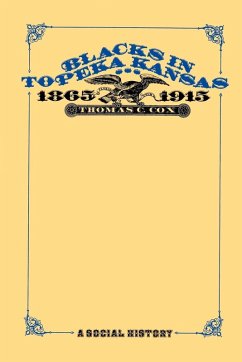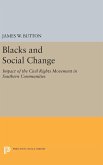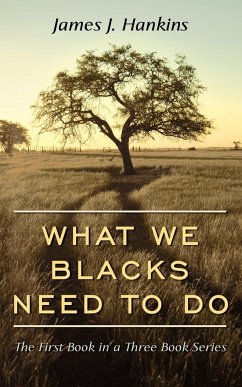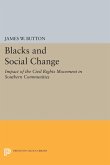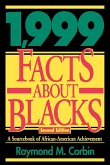Tracing the development of a black community in the trans-Mississippi West, Blacks in Topeka, Kansas, 1865--1915 is a thorough, insightful examination of an area of black history that has received, at best, scant attention. Thomas C. Cox probes in this study the political, social, and economic standing of blacks and the growth of black institutions in the Topeka area from early settlement during the territorial period through the rise of an urban Topeka in the late nineteenth and early twentieth centuries.Pivotal In the development of the black community was the Great Exodus of the 1870s -- the massive migration of southern blacks that brought the community new leaders, businessmen, and skilled laborers, and provided the impetus for establishment of institutions and elaborate social structures. Assessing the impact of the Exodus on social stratification and on the destruction of power, Cox closely examines the establishment of political and social clubs, the founding of churches, the rise of the black press -- including the influential Colored Citizen and Plaindealer -- and the emergence of such community leaders a John Wright, William Eagle son, and James Guy.The racial discrimination that permeated Topeka and intensified in the wake of the Great Exodus soon brought about organized protest by the black community to advance the causes of reform and social progress. As this movement grew in strength, it became a powerful bond that overcame divisions within black Topeka, and gave rise to a cohesive community grounded in strong local institutions through which blacks could challenge city, state, and national attitudes and events. In the case of Topeka, which in many ways was exceptional, discrimination helped to create a significant degree of self-determination.With relevance to American social history in general, Thomas Cox's Blacks in Topeka, Kansas, 1865--1915 fully utilizes the methods and materials of social history -- including census analysis and group biography -- to conclusively demonstrate the significance of Topeka in the history of race relations and the growth of black political and nonpolitical institutions.
Hinweis: Dieser Artikel kann nur an eine deutsche Lieferadresse ausgeliefert werden.
Hinweis: Dieser Artikel kann nur an eine deutsche Lieferadresse ausgeliefert werden.

